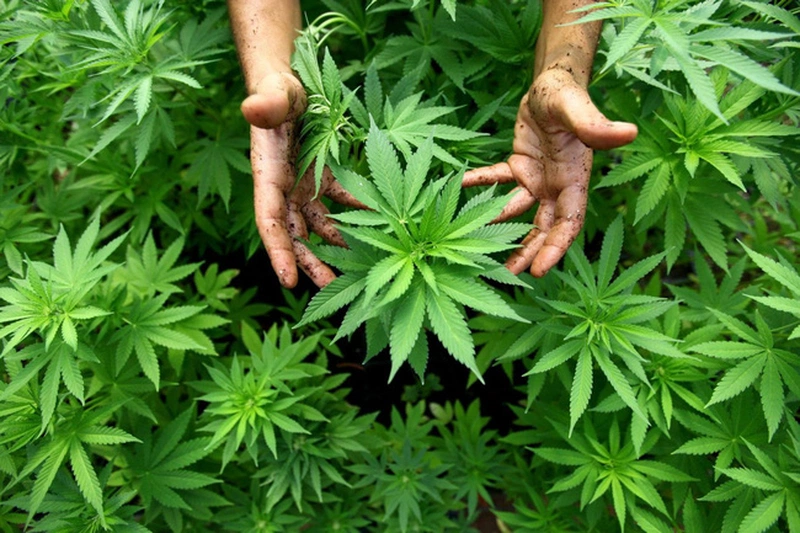Which European country authorises the use of cannabis? The issue of legalising cannabis in the countries Europeans is a subject that is attracting a lot of attention, especially as the trend towards legalisation becomes more and more common around the world. In this article, we explore the European countries that allowcannabis useThis includes regulations and laws, as well as the positive and negative impacts of this policy.
Quick summary
Cannabis and the trend towards legalisation in Europe
Before delving into the details of the countries which authorise the use of cannabisIn this article, we take a look at the trend towards legalisation in Europe. Europe is a diverse continent with many countries with different laws and cultures. Each country has its own approach to the use and legalisation of cannabis. Although many countries remain conservative and impose strict prohibitions, some have begun to relax regulations, allowing cannabis to be used for medical or even recreational purposes.
This trend has emerged over the last few decades, as research into cannabis and its constituents has revealed significant medical potential. In addition, the prospects for the use of cannabis have changed, from seeing cannabis as a dangerous drug to seeing it as a substance that can be used safely if carefully controlled.

The benefits of legalising cannabis
The obvious advantages of legalisation of cannabis These include the generation of tax revenue, a reduction in crime linked to the illegal cannabis trade, and less pressure on the judicial system. In addition, legalisation makes it possible to control the quality and safety of cannabis, ensuring that consumers are not exposed to poor-quality or adulterated products.
The Negative Effects of Legalising Cannabis
However, legalising cannabis comes with a number of challenges. One risk is increased use of cannabis in the community, particularly among young people. Easier access could lead to excessive use, causing mental and social health problems. In addition, cannabis can affect work and learning capacity, and increase the risk of road accidents if used at the wheel.
European Countries Authorising Cannabis Use
We will now look at the European countries that have legalised cannabis or adopted a tolerant policy towards its use. These countries include the Netherlands, Germany, Spain and Portugal.
The Netherlands: Pioneers in the Legalisation of Cannabis
The Netherlands is Europe's most famous country when it comes to legalisation of cannabis. Since the 1970s, the Netherlands has adopted an extremely tolerant policy towards cannabis use, particularly in 'coffee shops' - places where people can buy and consume cannabis legally.
Legal regulations
In the Netherlands, possession of up to 5 grams of cannabis for personal use is considered legal. However, the sale of cannabis outside licensed shops is still illegal. Coffee shops are allowed to sell cannabis, but they must comply with certain strict regulations, such as not selling to under-18s and not selling more than a specific quantity to each consumer.
Economic and social impact
The Dutch policy has helped the country attract large numbers of tourists who come to discover and experience this freedom. This type of tourism has generated considerable revenue, while easing the burden on the judicial system, which does not need to deal with cases of personal use of cannabis.
However, there have been problems, not least the fact that the Netherlands has become a destination for 'cannabis tourism', leading to some areas being swamped by tourists. Some localities have even adopted measures to restrict foreigners' access to coffee shops.
Germany: Recent political changes
Germany is one of the countries that has seen a major shift in cannabis-related policies in recent years. Known as one of the strongest economies in Europe, Germany began discussing the legalisation of recreational cannabis after legalising medical cannabis in 2017.
Medical Cannabis
The use of cannabis for medical purposes has been legalised and is strictly regulated in Germany. Patients suffering from serious illnesses such as cancer, Parkinson's disease and epilepsy can be prescribed cannabis by specialist doctors.
Legalisation of Recreational Cannabis
Since 2021, Germany has been discussing the legalisation of cannabis for recreational purposes. The new government is working to create a legal framework for the sale and use of cannabis, with the aim of reducing cannabis-related crime and protecting public health.
Spain: Cannabis Growing and Social Clubs
Spain is also a country with a relatively tolerant policy towards cannabis use, although the legislation is a little less clear-cut than in the Netherlands. In Spain, although the sale of cannabis is technically illegal, growing cannabis for personal use is decriminalised, and there are 'cannabis social clubs' where members can grow and share cannabis with each other.
Social Cannabis Clubs
These social clubs are private associations that allow their members to grow and consume cannabis in a closed, controlled environment. Each member contributes to the cultivation of cannabis for their own personal use, and this is seen as a way of circumventing the laws prohibiting the public sale of cannabis. By joining a club, members share the costs of production and benefit from an environment where they can consume in complete safety, without fear of prosecution.
Limits and challenges
However, this approach is not without its challenges. Cannabis clubs in Spain operate in a legal grey area, and while possession and private use are tolerated, the public sale of cannabis remains illegal. This has led to situations where some clubs have been accused of taking advantage of the growing demand for cannabis by selling outside their circle of members, which can result in legal action.
Portugal: Decriminalisation and Drug Reform
Portugal is often cited as an example of progressive drug policy, having chosen to decriminalise all drugs, including cannabis, in 2001. Although decriminalisation does not mean legalisation, it does mean that the use and possession of small quantities of cannabis for personal use are not considered crimes, but rather administrative offences.
The Decriminalisation Model
The Portuguese model does not punish individuals for possession of small quantities of cannabis, provided it is for personal use. Instead, offenders can be referred to deterrence commissions that may recommend treatment or light penalties, but without the associated criminal records.
Results and Impact
Portugal has seen positive results from this approach, with a significant reduction in drug-related addiction and incarceration rates. By adopting an approach focused on public health rather than criminal repression, Portugal has succeeded in creating an environment where drug users, including cannabis users, can access health care and support services without fear of severe punishment.
France: Conservatism in Cannabis Policy
France is one of the countries taking a relatively conservative stance on cannabis legalisation compared with its neighbours. Although France has one of the highest rates of cannabis use in Europe, it maintains strict legal measures regarding the consumption and trade of the substance. In recent years, however, the French government has begun to relax certain regulations and to discuss the legalisation of medical cannabis.
Legal regulation of cannabis in France
In France, the possession, use and trade of cannabis are considered illegal. Under current legislation, people caught in possession of cannabis may be subject to an administrative fine or heavier criminal penalties, particularly in cases involving trafficking or production.
Legalisation of medical cannabis
Although recreational cannabis remains banned, France has gradually accepted the use of cannabis for medical purposes. In 2020, France launched a pilot programme for the medical use of cannabis, allowing patients with serious illnesses, such as cancer or chronic pain, to be prescribed cannabis. The aim of the programme is to evaluate the effectiveness of cannabis in treatment, which could lead to changes in French healthcare policy.
Social impact and public opinion
Despite strict laws, French public opinion on the legalisation of cannabis is changing. A number of polls show that the majority of the population supports a relaxation of cannabis regulations, particularly with regard to its legalisation for medical purposes. Discussions about medical and recreational cannabis are becoming more frequent, and it is possible that France will relax its rules further in the future.

Switzerland: A Flexible and Open Approach
Switzerland takes a relatively open and flexible approach to cannabis, although recreational use of cannabis is not fully legalised. The country has introduced several pilot programmes and relaxed policies to regulate the use of cannabis, including medical cannabis and low-THC products.
In Switzerland, possession of cannabis with a THC level of over 1% is still considered illegal. However, Switzerland allows the sale and use of cannabis products containing low levels of THC (less than 1%), such as products containing CBD, which are legal and widely available on the market.
In the case of possession of small quantities of cannabis with a THC content in excess of 1%, offenders may be subject to an administrative fine without being prosecuted. The sale, production and consumption of cannabis with a high THC content remain prohibited and may result in harsher penalties.
Medical cannabis and pilot programmes
Switzerland has legalised medical cannabis and allows doctors to prescribe cannabis to patients suffering from serious illnesses such as chronic pain or neurological diseases. In addition, Switzerland is running a number of pilot programmes on recreational cannabis in major cities such as Zurich and Basel, aimed at assessing the impact of cannabis legalisation on society and the economy.
These programmes are being implemented in the form of pilot projects in which certain shops are authorised to sell cannabis for recreational purposes to a restricted group of consumers. The results of these programmes will help the Swiss government to make decisions on cannabis policy in the future.
Economic and social impact
Switzerland's flexible policy towards CBD-based products has encouraged the rapid growth of this industry, which has become an important component of the country's economy. The legalisation of medical cannabis has also brought many benefits to patients and relieved pressure on the healthcare system.
In addition, the pilot programmes on recreational cannabis could pave the way for wider policy change in Switzerland, particularly if research results show that legalisation can help reduce crime and generate new tax revenues for the country.
The challenges ahead for legalising cannabis in Europe
Although more and more European countries are moving towards legalising or decriminalising cannabis, many challenges remain. Governments need to strike a balance between regulating cannabis use to protect public health, while minimising potential negative impacts, such as increased use among young people or irresponsible consumption.
In addition, the question of competition between the legal and illegal cannabis markets remains a crucial issue. The creation of a legal market does not automatically guarantee the elimination of the illegal trade, particularly if the prices or quality of legal cannabis cannot compete with those of the black market.
Conclusion
La legalisation of cannabis is a complex subject with many benefits and challenges. While some European countries such as the Netherlands, Spain and Germany are adopting more progressive approaches, it is crucial to carefully observe the long-term effects of these policies. In the coming years, it will be interesting to see how Europe as a whole reacts to this global trend and whether other countries will choose to follow the example of those that have already adopted a more tolerant approach to cannabis use.

